What I'm Reading This Summer (Non-Fiction Edition)
Six books for people who can't read a mystery on the beach like a normal person.
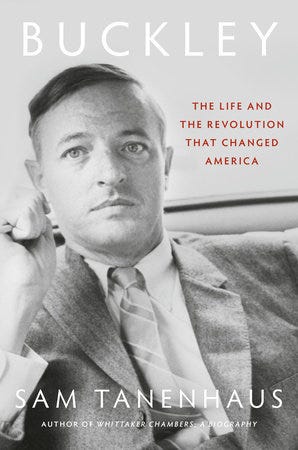
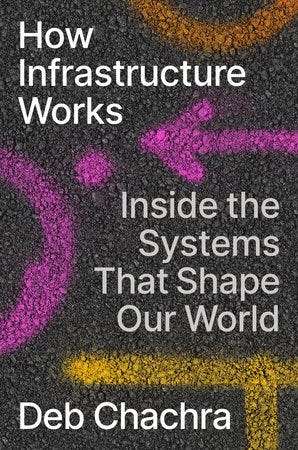
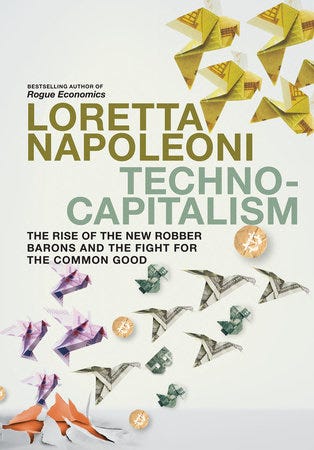
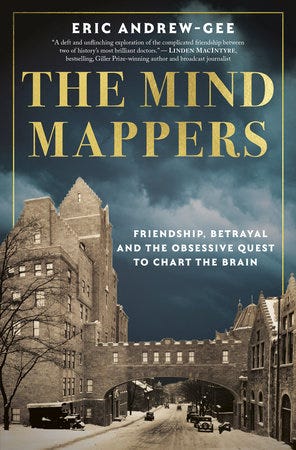
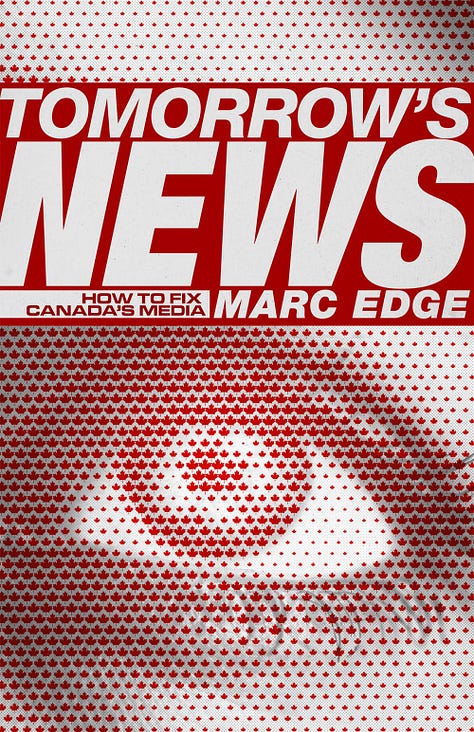
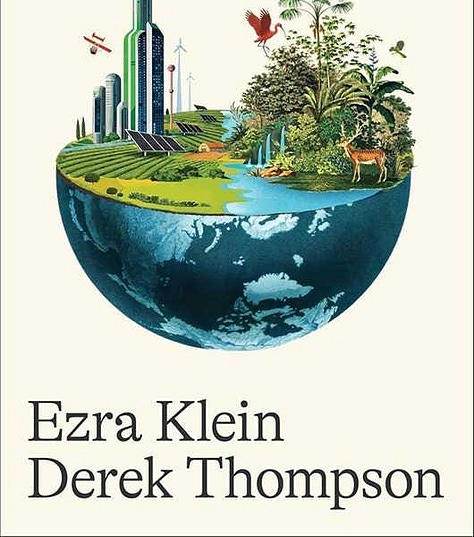
I’m taking a short break in two weeks, during which time I’m going to feature a guest post in place of my usual column — something on travel, to mix things up a tad. I’ll be using my time off to catch up on some non-fiction books that have been sitting in a pile in my office for a few months, and some I’ve just picked up. Ahead of my break, I wanted to share those volumes with you, along with a two I’ve just read.
How Infrastructure Works: Inside the Systems That Shape Our World by Debra Chachra
I’m excited for this book, a look at the systems and structures that pull us together and make shared living at scale possible. Infrastructure is the sort of thing that’s just there — or not. The sort of thing we take for granted — or complain about endlessly. It depends on the day, the place, and the project. Chachra digs into how these infrastructure undertakings work, how they succeed, how they fail, how they are shaped by politics, and how we ought to think about all of this in the face of growing threats, particularly from climate change. For Canadian readers, the book is a particularly timely read, given how gung-ho the government is on building, or at least saying they’ll build.
The Mind Mappers: Friendship, Betrayal, and the Obsessive Quest to Chart the Brain by Eric Andrew-Gee
I finished this book recently ahead of reviewing it for the Globe and Mail. It’s a fantastic medical history and biography of the famous neurosurgeon and scientist Wilder Penfield (yes, from the “I smell burnt toast” Heritage Minute) and his partner, the hopefully-no-longer-forgotten William Cone. Indeed, it was Cone, alongside others, who made Penfield’s success possible. Andrew-Gee does an excellent job at recalling Cone to us. The book is a study of the two men, their relationship, and developments in neuroscience and surgery in the 20th century. It’s also a biography in miniature of Montreal and the repression that marked Canada during the latter half or so of the last century.
Buckley: The Life and the Revolution That Changed America by Sam Tanenhaus
After years of work, Sam Tanenhaus has produced a…hefty biography of the late American conservative thinker, writer, and movement-maker William F. Buckley. I am unreasonably excited to read this book, both because I respect Tanenhaus’ work — he also wrote a biography of Whittaker Chambers — and because I am endlessly fascinated by Buckley, who was central in creating modern conservatism in the US-of-A (oops). I see a lot of people saying that the left needs a Joe Rogan, but what the left actually needs is a William F. Buckley. Maybe this book can help us sort out what that would look like. Then we can fight about it for decades instead of doing it.
Techno-Capitalism: The Rise of the New Robber Barons and the Fight for the Common Good by Loretta Napoleoni
I’m not anti-technology. I like a lot of technology and what it has to offer. Indeed, there’s a long left tradition that argues technology is a powerful and potentially useful force for liberation. But as I’ve argued before, it depends a lot on who controls the technology — and that’s usually not us. I’m trying to better understand how powerful tech leaders leverage their position and technologies to shape the world, and I’m hoping this book will help me get a little further along in that quest.
Abundance by Ezra Klein and Derek Thompson
I don’t need to rehash this one for you, I’m sure. It’s the darling liberal volume that’s making the global rounds, promising everything a good, well-behaved progressive could hope for, if only we could all agree on respectable, non-political politics. I think I’m going to absolutely hate this one — at least that’s the sense I get from what I’ve read and listened to from Klein on it so far. But I don’t know for sure and so I’m going to read it to find out. In the meantime, economist Isabella Weber has a powerful critique of it in FP and Luke Savage wrote a great takedown of his own. Maybe you’ll love it. I don’t think I will. It seems very Canada-circa-2015 to me. We know how that went.
Tomorrow’s News: How to Fix Canada’s Media by Marc Edge
This is another book I’ve recently finished and reviewed, in this case for Alberta Views in a piece that’s forthcoming. It’s a slim-ish but comprehensive volume that documents the utterly horrid state of Canadian media and the flaws in the current public subsidy and ownership models. Edge offers a way forward for media, a program for saving it by focusing state support on hard, factual reporting (instead of opinion writing, which is both what I do and what I’m comfortable saying is parasitic on reporting) and local journalism. This is a must-read book for those who are concerned about the state and future of media, and democracy, in Canada. Which should be each of us.


Can't argue with your reasons for any of these choices, and certainly hope that you enjoy this respite! Should you get through all of them ahead of schedule, I can suggest one more: "Revolusi" by David Van Reybrouck. Due to a family connection (and a month-long visit to Java in 1993), I've been curious about Indonesian history and politics for a while, and very much enjoyed this book. It certainly made it hard to put up with the recent Canadian-Dutch gushy love-in on the occasion of the 80th anniversary of the liberation of the Netherlands. The Dutch had barely caught their breath after being freed from Nazi tyranny and cruelty when they resumed their colonialist tyranny and cruelty in the Dutch East Indies, which dragged on for almost 5 more years. For this our heroic Canadians sacrificed so much?
I was underwhelmed by Debra Chachra's Infrastructure book. I work in utilities and follow current events/history and much of the content seemed basic to me. It could be good if networks and systems are unfamiliar territory. She has a Canadian background and does make some effort to include some of CanContext.